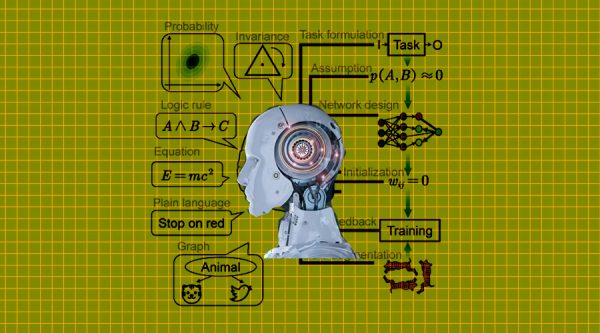Here are the best 10 alternatives to Google Colab for machine learning projects.
Colaboratory, commonly referred to as “Colab,” is essentially a product of Google Research. It gives users the ability to write and run any Python code through a web browser. Technically speaking, Google Colab is a hosted Jupyter notebook service that offers unrestricted access to computer resources, including GPUs. Data analysis, education, and machine learning are three fields in which Google Colab alternatives thrive. Google Colab might be defined as a superior version of Jupyter Notebook. There are currently a large number of top Google Colab substitutes that provide you with improved compute availability dependent on the remaining balance of your compute units. For machine learning engineers, Google Colab alternatives address issues with faster GPUs, longer sessions, less interruptions, terminal access, and more RAM, to name just a few. This post lists the best Google Colab substitutes for machine learning engineers to use in 2023.
Amazon SageMaker
Amazon SageMaker is a different cloud-based machine-learning platform that was developed by Amazon in November 2017. It offers hosted Jupyter notebooks that don’t require any setup. In addition to the Deep Learning frameworks provided by Google Colab, such as Tensorflow, Scikit-Learn, PyTorch, and XGBoost, SageMaker also provides Chainer, SparkML, and MXNet. There are several features accessible, including Amazon SageMaker Ground Truth, Amazon Augmented AI, Amazon SageMaker Studio Notebooks, Preprocessing, and Amazon SageMaker Experiments. Although you must pay for it, a trial version is available without charge.
CoCalc
CoCalc, also known as Collaborative Calculation, is a web-based platform for computational mathematics course management and cloud computing (SaaS). It is an open-source tool that SageMath Inc. hosts and allows editing of Jupyter notebooks, LaTeX papers, and Sage worksheets. The creator and main developer of CoCalc is William Stein, a former mathematics professor at the University of Washington.
Notebook Jupyter
An open-source web application called Jupyter Notebook enables users to create and share documents with live code, graphics, equations, and text. The Jupyter Notebook is looked after by the Project Jupyter staff. These independent projects were made possible by the IPython initiative. Support is provided for Python, R, and Julia. Their main uses are in computational physics and data analysis. Similar to Google Colab, Jupyter notebooks focus more on making work replicable and simple to understand. It has a variety of visualisations that the notebook may render right away. It has two operating modes, called insert and escape.
Replit
Replit is a popular IDE with a browser interface that competes with Google Colab. This online IDE, editor, compiler, interpreter, and REPL is simple but effective. Replit allows you to programme, compile, run, and host in more than 50 different programming languages. You can run and save code whenever you want on your browser. Chromebooks and other devices having a web browser are compatible with Replit.
Cloud Notebook
Colab and Microsoft’s Azure laptops are very similar in terms of functionality. Both systems offer a free cloud-sharing capability. In terms of speed, Azure Notebooks excels and performs far better than Colab. It has 4 gigabytes of RAM built in. The connected notebooks that Azure Notebooks creates go by the moniker of libraries. These libraries contain data files that are all under 100 megabytes in size. Azure Notebooks supports Python, R, and F# among other programming languages. It has the built-in Jupyter UI. Azure Notebooks are better suited to simple applications.
Kernel for Kaggle
Although Kaggle is most known for their data science competitions, they also offer free Kernels or Notebooks for performing machine learning on your own, without concern for competitions. Kaggle Kernels is a free platform for executing Jupyter notebooks in the browser. Both Colab and Kaggle are Google products, and they have a lot in common.
Binder
An open-source tool called BinderHub is used to set up the Binder service in the cloud. Binder enables the creation of distinctive computing environments that can be shared and utilised by numerous remote users. Any publicly accessible Git repository that you enter its URL into will open in the Jupyter Notebook interface by default. You are free to use any notebook in the repository, but any changes you make won’t be saved back to the repository.
DataPlatform Notebooks from IBM
In 2016, IBM unveiled the Watson Data Platform and Data Science Experience (DSX), both of which supported open-source options. These options included R, Python, Scala, Jupyter notebooks, and Apache Spark. Eventually, the platform was released, allowing users to work on data science projects across multiple clouds. Product containerization based on Kubernetes was used to achieve this. It can be installed wherever the Docker or CloudFoundry containers containing the data are. IBM DataPlatform Notebooks offer containerization for multi-cloud or hybrid deployment, in contrast to Google Colab. Colab’s private cloud must be used for data science.
CodeSandbox
An online IDE and code editor for rapid web development is called CodeSandbox. Thanks to the online code editor and prototype tool known as CodeSandbox, Web apps may be easily produced and shared. It supports frameworks like Angular, React, Vue, and ordinary typescript or javascript.
StackBlitz
StackBlitz is the name of the online code editor for web applications. Its engine is Visual Studio Code. Thanks to StackBlitz, modern editing features from VS Code are now accessible in the browser. Because StackBlitz uses Progressive Web App APIs to host a live development server in-browser, you can keep editing even if you go offline.









